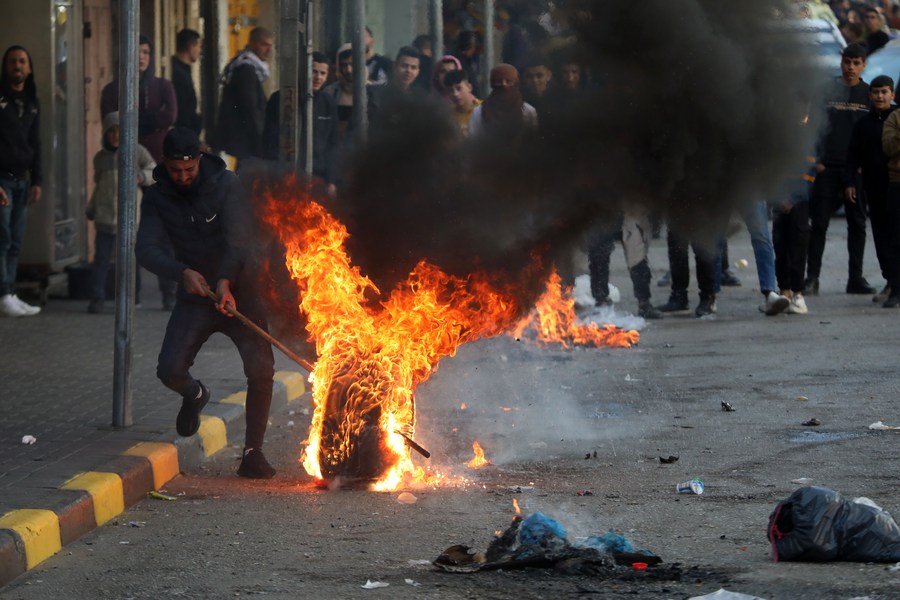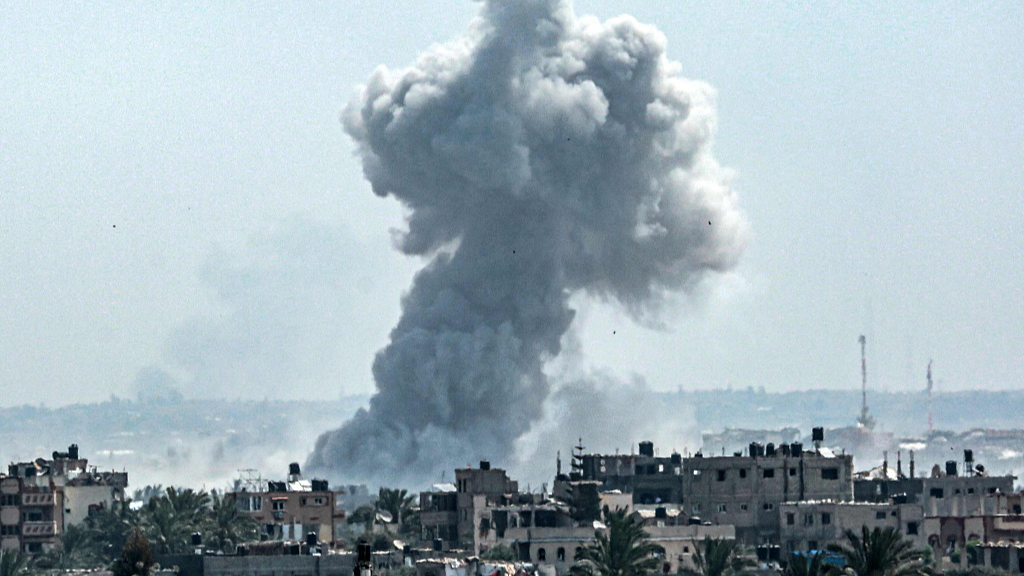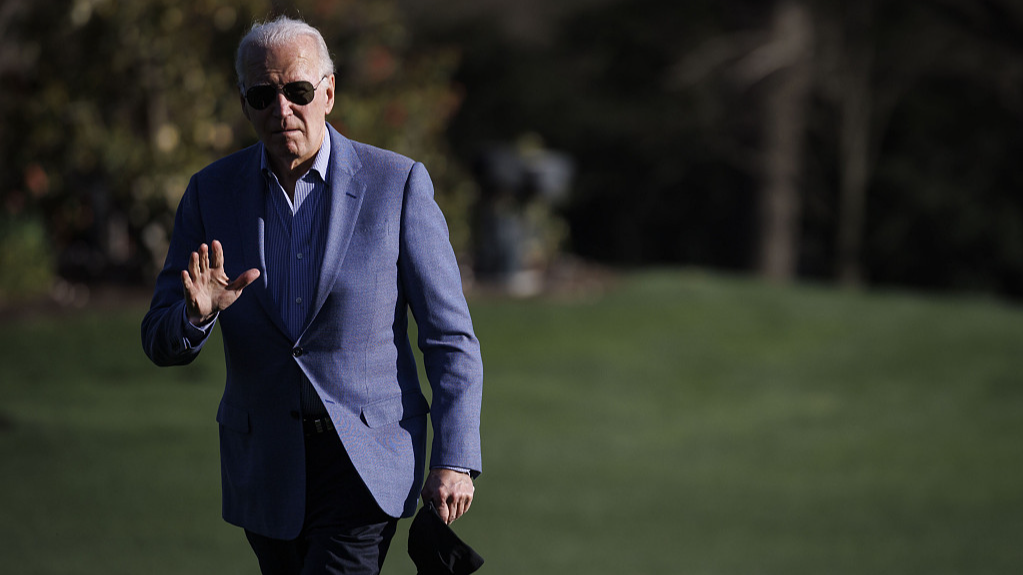CAIRO, Feb. 1 (Xinhua) — The United States is attempting to enhance its presence in the Middle East through visits and military cooperation. However, its influence on the region has been dwindling due to decades-long wars wreaking havoc on regional peace and development, its “unfair policies” on the Palestinian-Israeli conflict and other factors, Egyptian analysts said.
DEMOCRACY USED FOR U.S. HEGEMONY
In the name of democracy and freedom, the United States has waged cruel wars in the Middle East, causing huge casualties and displacing a huge number of people. Observers believe U.S. military intervention has nothing to do with its so-called democracy, but aims for its own global and regional hegemony.
The “main reasons for the U.S. pursuit of rebuilding a new Middle East” are to benefit from the large oil reserves in the region, control international navigation lines, and secure Israel; and the United States has been trying to achieve its goals through falsely spreading the principles of democracy and freedom, Egyptian political expert Akram Hossam told Xinhua recently.
The United States is obsessed with maintaining a unipolar system by maximizing its military and political power. And its failed military intervention in countries such as Afghanistan, Iraq, Syria and Yemen has destroyed its image as a democracy, he said.
“The wars in Afghanistan and Iraq dealt a blow to U.S. democratic theories and showed that the Western power could use power and interventions unwisely to the extent it causes instability,” he added.
The U.S. botched retreat from Afghanistan, as well as its military withdrawal from Iraq and Syria, signaled that Washington had stumbled over its Mideast policies, said Hamid Faris, an international relations professor at Misr University for Science and Technology.
The Mideast policies pursued by the current White House are of no difference from the former administrations. Despite the wars in the region, the United States has never achieved security, stability and prosperity as it had promised, Faris added.
BIASED MEDIATOR
Despite calling for a resolution of the Palestinian-Israeli conflict, the United States as a one-sided mediator has no way to increase chances of securing a peace deal, according to analysts.
In the eyes of Palestinians, the United States has been flagrantly backing Israel’s assaults. Former U.S. President Donald Trump, in particular, orchestrated the transfer of the U.S. embassy from Tel Aviv to Jerusalem and cut aid for the main UN program for Palestinian refugees, Hossam said.
On Monday, Egyptian President Abdel-Fattah al-Sisi and Egyptian Foreign Minister Sameh Shoukry discussed with visiting U.S. Secretary of State Antony Blinken the ongoing escalation of tensions between Palestine and Israel.
As part of his three-day Mideast trip, Blinken arrived in Israel on Monday to meet Israeli Prime Minister Benjamin Netanyahu before traveling to Ramallah to meet Palestinian President Mahmoud Abbas on Tuesday.
His visit seems to ease the tensions on the surface; nonetheless, assuming a weak and unfair mediating role, his country has not presented anything new to serve the Palestinian cause in the past few years, according to Hossam and Faris.
Faris described Washington as one of the struggling parties, but not a broker of a fair settlement based on the two-state solution.
Mokhtar Gobashy, vice chairman of Cairo-based Arab Centre for Political and Strategic Studies, doesn’t expect the U.S. diplomat’s visit to bring tangible results for the settlement of the decades-old Palestinian-Israeli conflict, though it “might lead to a surface calm for the interest of Israel.”
Washington is reassessing its role in the Middle East amid changing geopolitical landscapes and “is keener now to return to fill in a political vacuum in the Middle East,” Gobashy said.
Source(s): Xinhua

 World7 days ago
World7 days ago
 World6 days ago
World6 days ago
 News5 days ago
News5 days ago
 News5 days ago
News5 days ago
 News6 days ago
News6 days ago
 News5 days ago
News5 days ago
 News4 days ago
News4 days ago
 News6 days ago
News6 days ago


















